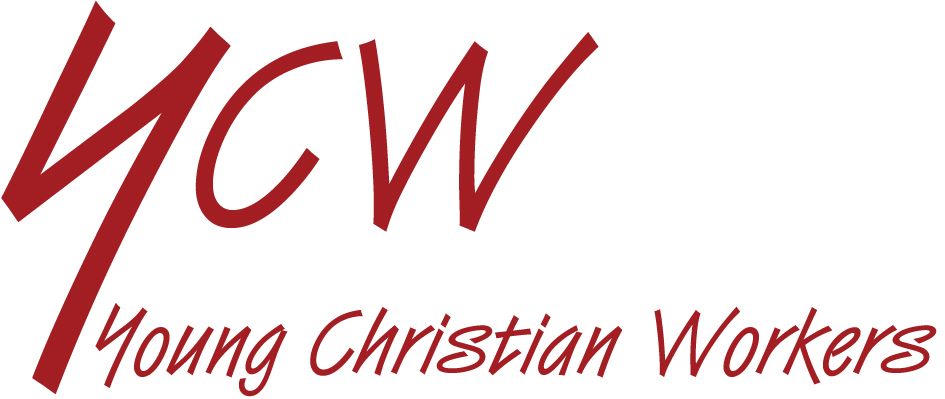Last month, Pope Francis addressed the Fouth World Meeting of Popular Movements to give a message of support and encouragement for all those involved. An initiative of Pope Francis, the World Meeting of Popular Movements’ (WMPM) purpose is to create an “encounter” between Church leadership and grassroots organizations working to address the “economy of exclusion and inequality” (Joy of the Gospel, nos. 53-54) by working for structural changes that promote social, economic and racial justice.
Popular movements are grassroots organizations and social movements established around the world by people whose inalienable rights to decent work, decent housing, and fertile land and food are undermined, threatened or denied outright. These movements primarily represent three increasingly excluded social sectors:
workers who are at risk or lack job security;
landless farmers, family farmers, indigenous people and those at risk of being driven off the land by large agribusiness corporations and violence; and
the marginalized and forgotten, including persons who are homeless and persons living in communities without adequate infrastructure.
The World Meeting of Popular Movements (WMPM) is designed to bring these communities together with faith leaders from across the world.
Amongst the Pope’s remarks were a series of questions and requests. He said:
I ask all the great pharmaceutical laboratories to release the patents. Make a gesture of humanity and allow every country, every people, every human being, to have access to the vaccines. There are countries where only three or four per cent of the inhabitants have been vaccinated.
In the name of God, I ask financial groups and international credit institutions to allow poor countries to assure “the basic needs of their people” and to cancel those debts that so often are contracted against the interests of those same peoples.
In the name of God, I ask the great extractive industries -- mining, oil, forestry, real estate, agribusiness -- to stop destroying forests, wetlands and mountains, to stop polluting rivers and seas, to stop poisoning food and people.
In the name of God, I ask the great food corporations to stop imposing monopolistic systems of production and distribution that inflate prices and end up withholding bread from the hungry.
In the name of God, I ask arms manufacturers and dealers to completely stop their activity, because it foments violence and war, it contributes to those awful geopolitical games which cost millions of lives displaced and millions dead.
In the name of God, I ask the technology giants to stop exploiting human weakness, people’s vulnerability, for the sake of profits without caring about the spread of hate speech, grooming, fake news, conspiracy theories, and political manipulation.
In the name of God, I ask the telecommunications giants to ease access to educational material and connectivity for teachers via the internet so that poor children can be educated even under quarantine.
In the name of God, I ask the media to stop the logic of post-truth, disinformation, defamation, slander and the unhealthy attraction to dirt and scandal, and to contribute to human fraternity and empathy with those who are most deeply damaged.
In the name of God, I call on powerful countries to stop aggression, blockades and unilateral sanctions against any country anywhere on earth. No to neo-colonialism. Conflicts must be resolved in multilateral fora such as the United Nations. We have already seen how unilateral interventions, invasions and occupations end up; even if they are justified by noble motives and fine words.
Pope Francis also spoke about important issues within the world of work and set out some essentials to ensure there is always dignity throughn work. He said:
A basic income (the UBI) or salary so that everyone in the world may have access to the most basic necessities of life. It is right to fight for a humane distribution of these resources, and it is up to governments to establish tax and redistribution schemes so that the wealth of one part of society is shared fairly, but without imposing an unbearable burden, especially upon the middle class. Generally, when conflicts arise in this matter, it is the middle class that suffers most. Let us not forget that today’s huge fortunes are the fruit of the work, scientific research and technical innovation of thousands of men and women over generations.
Shortening the workday is another possibility: the minimum income is one, the reduction of the working day is another possibility, and one that needs seriously to be explored. In the 19th century, workers laboured twelve, fourteen, sixteen hours a day. When they achieved the eight-hour day, nothing collapsed, contrary to what some sectors had predicted. So, I insist, “working fewer hours so that more people can have access to the labour market is something we need to explore with some urgency”. There must not be so many people overwhelmed by overwork and so many others overwhelmed by lack of work.
I believe these measures are necessary, but of course not sufficient. They do not solve the root problem, nor do they guarantee access to land, housing and work in the quantity and quality that landless farmers, families without secure shelter and precarious workers deserve. Nor will they solve the enormous environmental challenges we face. But I wanted to mention them because they are possible measures and would point us in the right direction.











